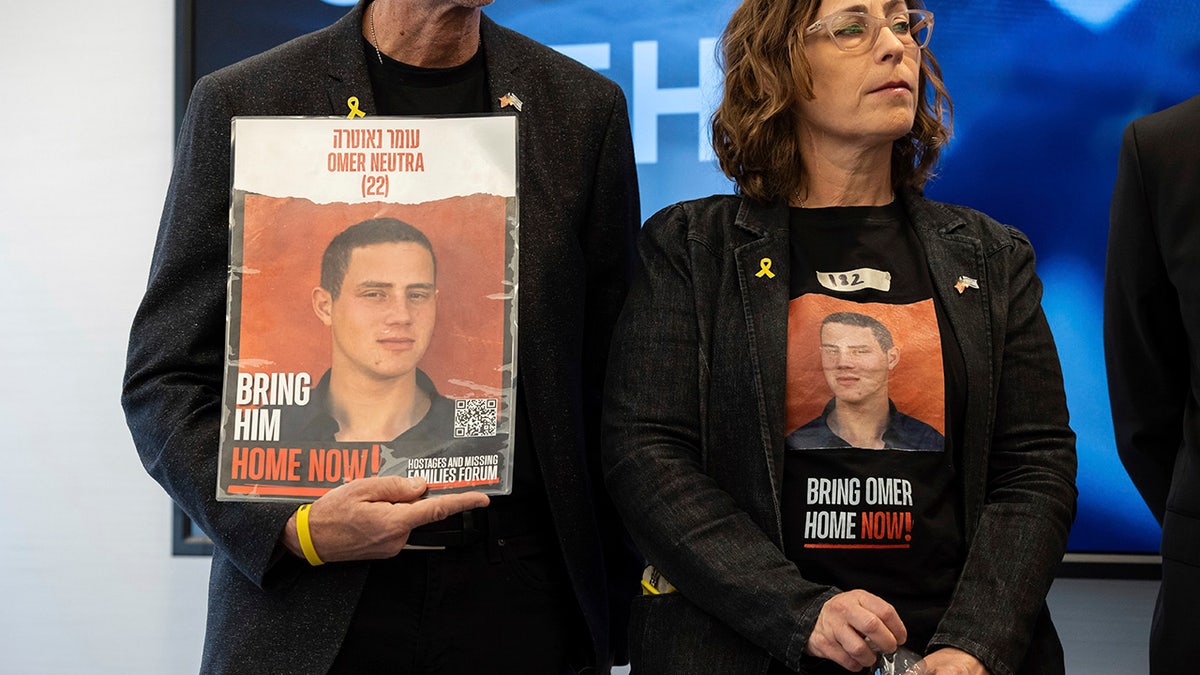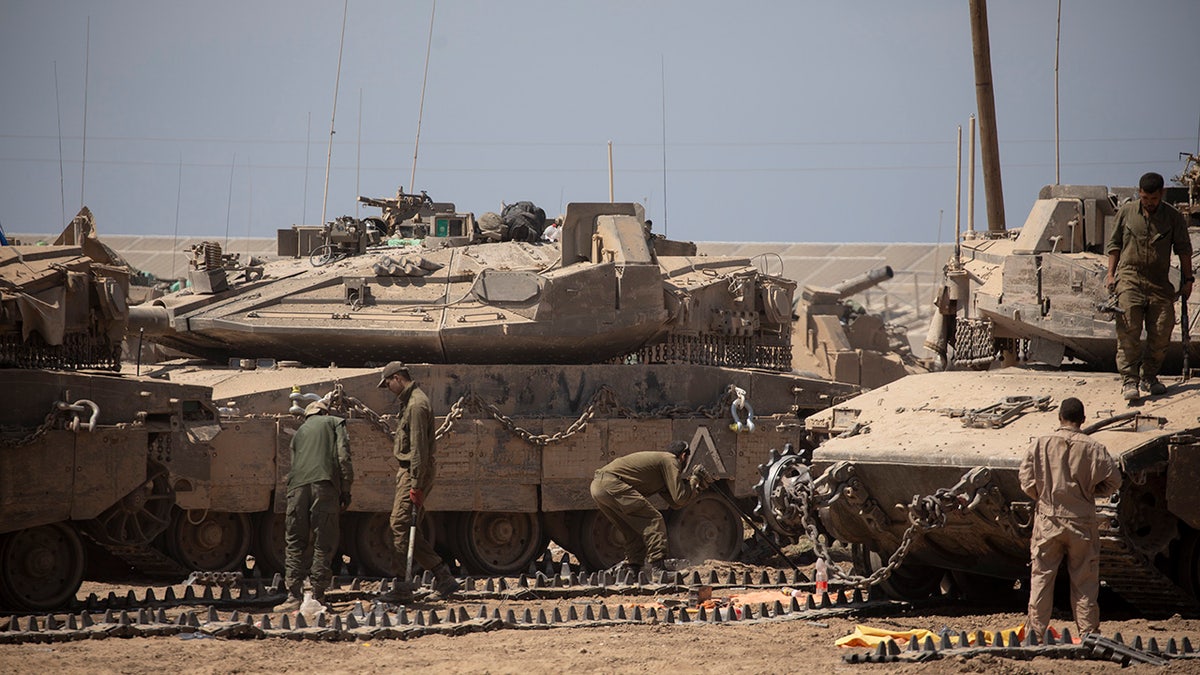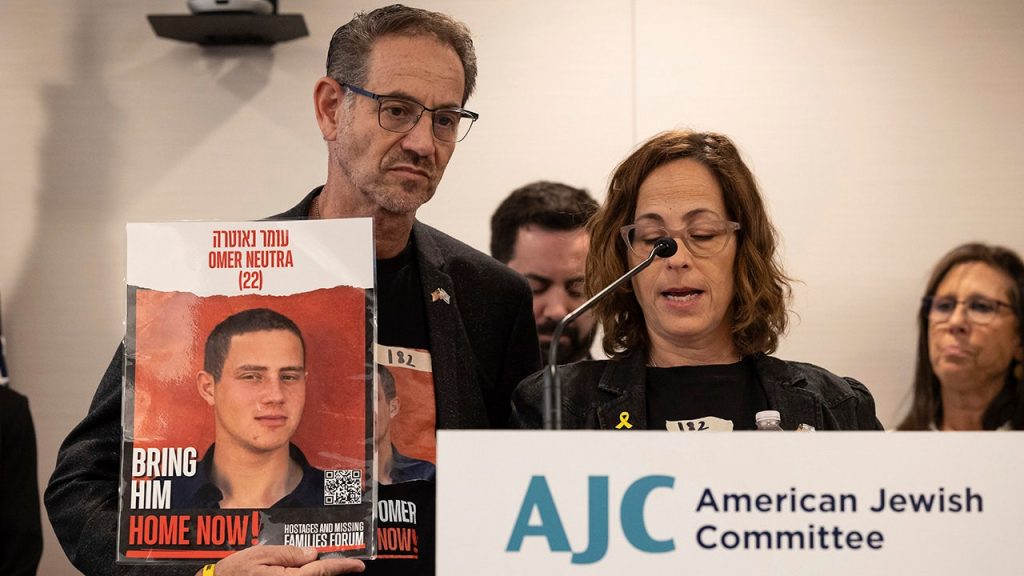The mother of Omer Neutra, a 22-year-old American from Long Island, New York, who was abducted by Hamas on Oct. 7, had a message for those who are pushing for Israel to end its military campaign.
“Bringing the hostages back should be the top priority. It should be a world top priority. Everyone looking for de-escalation in the region should be opening the sentence saying, you know, ‘Release the hostages.’ Any sentence, any demand of cease-fire without release of hostages is a death sentence to them,” Orna Neutra, said during an appearance on CNN’s “State of the Union.”
“As far as what’s going on in Israel, there’s a broad range, everyone feels that more needs to be done,” she continued. “Everyone is demanding more from the government. You know, people and different families have different perspectives on how to achieve that, and that’s what we’re seeing.”
Host Jake Tapper asked Neutra’s family if they were comfortable responding to criticism about Israeli Prime Minister Benjamin Netanyahu not prioritizing enough to secure the release of the remaining hostages held by Hamas on the six-month anniversary of the attacks on southern Israel.
ISRAEL WITHDRAWS ALL GROUND TROOPS FROM SOUTHERN GAZA, LEAVING JUST 1 IDF BRIGADE IN ENCLAVE

Ronen and Orna Neutra, parents of American hostage Omer Neutra, speak during a press conference with families of American hostages in Gaza and elected officials on April 5, 2024, in New York. (AP Photo/Yuki Iwamura)
“I can’t believe we’re sitting here six months later having to experience the terror every day,” said Omer’s father, Ronen Neutra. “Every day that we wake up we’re saying what are we doing to bring our son back home, and we feel that we’re failing. Day by day, and it’s [the] six-months mark. We can’t believe that.”
Neutra’s brother, Daniel, described him as a “strong, friendly, amazing guy. He’s a really funny guy. And so many people have reached out to me from his youth group, from school, so many different places, hundreds of people just reaching out to tell us how much he means to them, and he’s really a person who builds communities around him. And without him, these communities are lost. We don’t know what to do without him.”
The interview comes as a Hamas delegation led by the terror group’s chief deputy in Gaza, Khalil Al-Hayya, is expected to go to Cairo on Sunday to begin talks on a potential cease-fire, Reuters reported. Sources told Reuters that CIA Director Bill Burns was expected to arrive in Cairo on Saturday evening. An Israeli delegation and Qatari Foreign Minister Sheikh Mohammed bin Abdulrahman Al Thani are also expected to participate in the talks handled by Egyptian mediators, according to Egypt’s Al Qahera news.
The six-month mark has been met with growing frustration in Israel, where anti-government protests have swelled and anger is mounting over what some see as government inaction to help free about 130 remaining hostages, about a quarter of whom Israel says are dead, according to the Associated Press.

Ronen and Orna Neutra, parents of American hostage Omer Neutra, hold signs of their son during a press conference with families of American hostages in Gaza and elected officials on April 5, 2024, in New York. (AP Photo/Yuki Iwamura)
Hamas-led militants took about 250 captives when they crossed from Gaza into Israel on Oct. 7 and killed 1,200 people, mostly civilians.
Israel’s military announced Sunday it had withdrawn its forces from the southern Gaza city of Khan Younis, wrapping up a key phase in its ground offensive against Hamas and bringing its troop presence in the territory to one of the lowest levels since the ground operation began.
EXTREMISTS RISE IN NEW PALESTINIAN AUTHORITY GOVERNMENT AS BIDEN THREATENS ISRAEL OVER GAZA WAR
Military officials, speaking on condition of anonymity under army policy, told the AP a “significant force” remained in Gaza and would preserve the army’s “freedom of action” to continue targeted operations across the territory, including Khan Younis, a Hamas stronghold that has been Israel’s main focus for several months.

Israeli soldiers organize their tank equipment near the border with the Gaza Strip on April 7, 2024, in southern Israel. (Amir Levy/Getty Images)
Still, the withdrawal was a significant milestone as Israel and Hamas marked six months of fighting. The Israeli officials said the 98th paratroopers division would recuperate and prepare for future operations. Israel previously claimed to have dismantled Hamas forces in Khan Younis, the hometown of the group’s leader, Yahya Sinwar.
Israel has vowed to conduct a ground offensive on the southernmost Gaza city of Rafah, considered Hamas’ last stronghold, and Netanyahu on Sunday told his Cabinet that victory means “elimination of Hamas in the entire Gaza Strip, including Rafah.” But Rafah shelters some 1.4 million people — more than half of Gaza’s population. The prospect of an offensive has raised global alarm, including from Israel’s top ally, the U.S., which has demanded to see a credible plan to protect civilians. Allowing people to return to nearby Khan Younis could relieve some pressure on Rafah.
White House national security spokesperson John Kirby told ABC the U.S. believes that the partial Israeli withdrawal “is really just about rest and refit for these troops that have been on the ground for four months and not necessarily, that we can tell, indicative of some coming new operation for these troops.”
The Associated Press contributed to this report.

